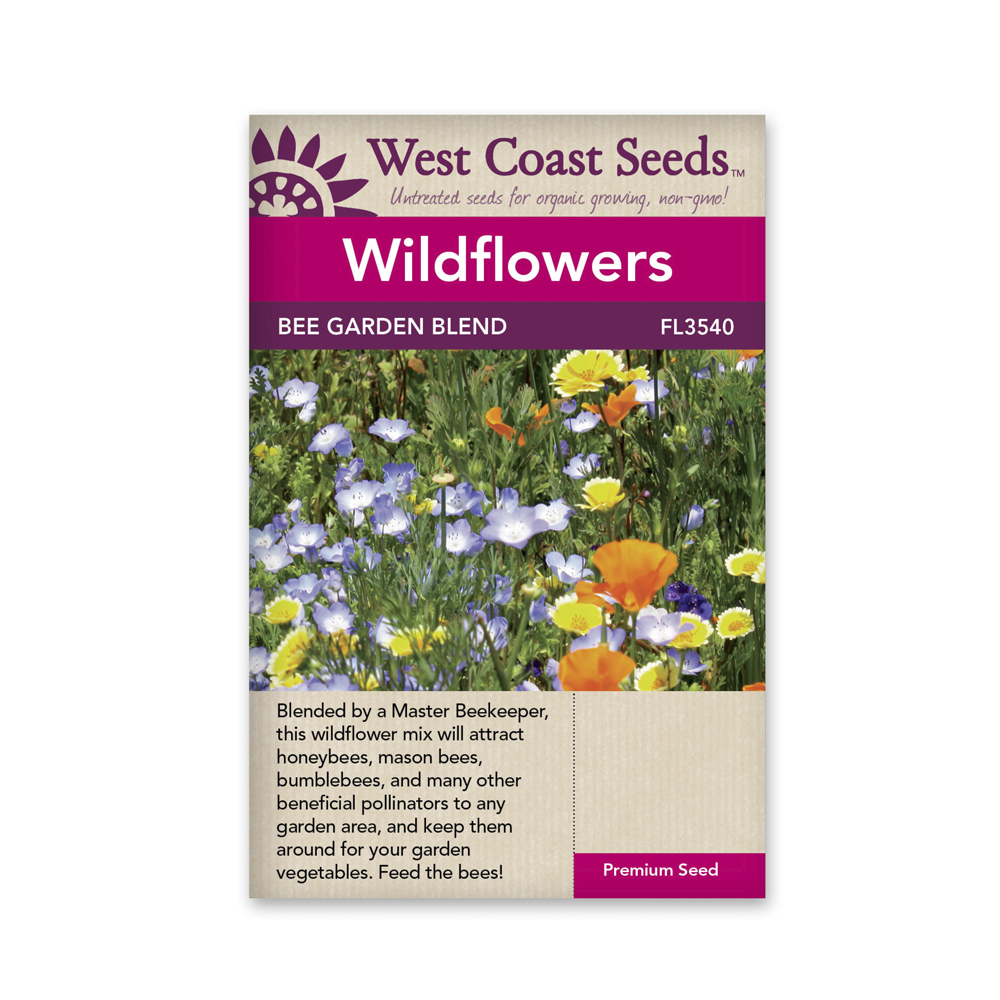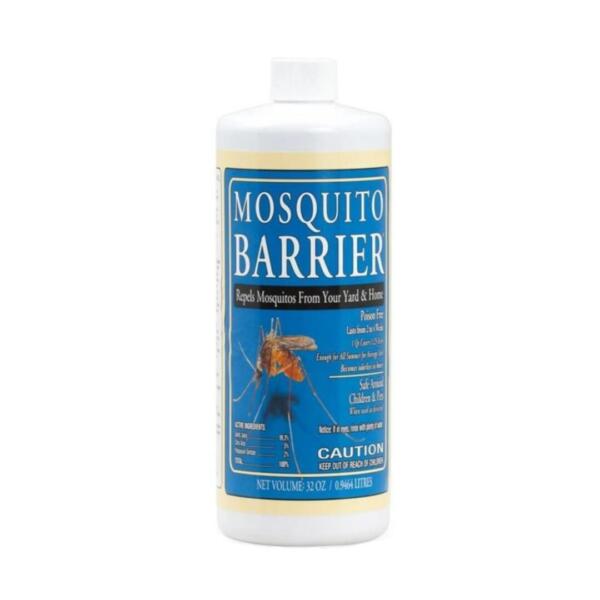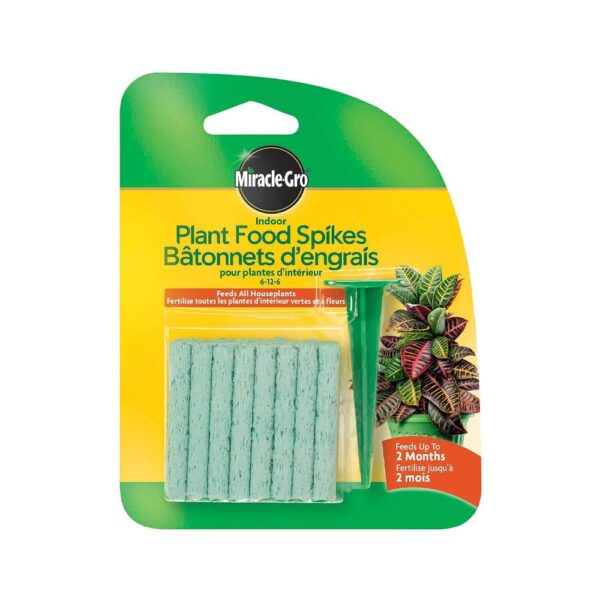Description
The Bee Garden Blend Wildflower Seeds are specially blended by our Certified Bee Master for use in managed landscapes such as disused laneways; verges; or along the edges of cultivated areas in residential or agricultural properties. Bees and flowering plants evolved together millions of years ago. We could not have one without the other. Although bees face many challenges in this age of global weather change; at West Coast Seeds we believe that the simple act of sowing the seeds of plants that bees and other pollinators love to forage on is a critically important step in helping to ensure they; the whole planet; and we have a future.
Recommended rate of application: 115g per 1,000 square feet.
5g – covers approximately 43 sq ft.
Season & Zone
Exposure: Full sun to partial shade
Zone: 3-10
Timing
Direct sow early March to the end of May. Wildflower seeds can also be sown in the autumn, but you may lose a certain percentage of seeds to water, birds, and animals. To make the most of the annual species, direct sow in March.
Pollinator friendly gardening practices are so easy to perform, important for the environment, and wonderful to enjoy! Pollinators like bees, butterflies and hummingbirds are essential for the survival of plants and animals. They help plants reproduce by transferring pollen from one flower to another. This process is crucial for the growth of fruits and vegetables. Pollinators also play a vital role in maintaining biodiversity and the health of ecosystems.
Gardeners can take several steps to protect pollinators. One way is to plant native flowers that bloom at different times of the year. This provides a continuous source of food for pollinators. Gardeners can also avoid using pesticides and herbicides, which can be harmful to pollinators.
DISCOVER POLLINATOR FRIENDLY PLANTS AND PRODUCTS AT SHELMERDINE!
Another way to protect pollinators is to provide them with nesting sites. Many pollinators, such as bees, lay their eggs in tunnels in decaying wood or sandy soil. Gardeners can create nesting sites by leaving tree snags on their property or by building or buying native bee houses. Providing water sources for pollinators is also important. A shallow dish of water on a deck or window sill can help thirsty pollinators stay hydrated.
Pollinators are absolutely essential for the health of our planet! Gardeners like yourself can play an important role in protecting pollinators by planting native flowers, avoiding pesticides, providing nesting sites and water sources, and advocating for policies that protect pollinators. A visit to Shelmerdine will inspire you to engage in these and other eco-friendly initiatives! By taking these steps, gardeners can help ensure that pollinators continue to thrive and contribute to the health of our ecosystems.
SHIPPING
Orders placed before 2pm CST (Central Standard Time) Monday to Friday will be shipped out within 3 business days after we receive your payment. Orders placed on weekends or holidays will be processed out the next business day.
Conditions beyond our control may cause delays in delivery time (weather, strikes, etc.). Shipping time is thus not guaranteed. Should a significant delay occur, please contact us at shop@shelmerdine.com or by calling 1-888-895-0032. Any errors or incomplete addresses can cause additional delays.
Should the delivery take longer than expected, we will notify you. Once the order has been shipped, the delivery time and the choice of carrier are based on the destination.
Is it possible to have my order delivered to another address than my own?
Yes, you can choose a different shipping address than the one from the billing address. You may only ship to one address per order. If your order contains gifts or items that require shipping to multiple locations, you will need to place separate orders for each address.
ORDER TRACKING
Once an order has shipped, we’ll send you an e-mail with the tracking number. Just click on the link to take you to the carrier’s website to track the progress of your shipment. It may take 72 hours for your tracking number to be activated on our carrier’s site.
We do our best to ensure your items arrive in perfect condition. However, in the unlikely event that your box arrives in a damaged condition, please accept the delivery and contact us at shop@shelmerdine.com or by calling 1-888-895-0032 so that we can assist you.
Please note that if you refuse your order, or any part of it without our authorization, you will be responsible for all return shipping charges.
RETURNS
For purchases made online, we must receive your returned item(s) within 30 days from the date of shipment to be eligible for a refund. To be eligible for a return, your item must be unused and in the same condition that you received it. It must also be in the original packaging.
You can return your item(s) in one of two ways:
1) Within 30 days, return your item(s) to our store location at 7800 Roblin Blvd, Headingley, Manitoba. Simply go to the cash desk, provide them with the item and your packing slip and/or receipt, and they will process the return to your original method of payment.
2) If you’re unable to visit our store you can also send your items directly to us by mail. You will be responsible for paying for your own shipping costs for returning your item. If you are shipping an item over $75, you should consider using a trackable shipping service or purchasing shipping insurance. The value of goods will be refunded to your original method of payment within 3 business days of our receipt of returned goods. The original shipping charges are non-refundable.
Mail your item(s) to:
Shelmerdine Garden Centre Ltd
Attention: Returns
7800 Roblin Blvd
Headingley, MB R4H 1B6
RETURN POLICY FOR INDOOR PLANTS:
Once they have left our care, indoor plants, flowering plants, Bonsai, air plants, patio tropicals and citrus are not warrantied. Indoor plants can be returned within 14 days for store credit. No refunds. If returning your plant in temperatures below 10 degrees Celsius, kindly wrap it for the trip back to us. (A garbage bag or the paper it was wrapped in will suffice).
RETURN POLICY FOR OUTDOOR PLANTS:
Once they have left our care, annuals, perennials, sod, and hobby plants are not warrantied. No refunds. If perennials, trees and shrubs are returned within 14 days a full refund will be given, or if returned within 15-28 days a store credit will be given.
WARRANTY INFORMATION FOR HARDY TREES & SHRUBS:
All Zone 2 and 3 plant material is guaranteed to live for 1 year or, with the purchase of Myke, for 5 years from the date of purchase (some exceptions apply). Plants will be replaced for equal dollar value one time only. All warranty returns must be accompanied by the dead plant and receipt. No Refunds. Damage caused by flooding, hail, neglect, animal damage or natural disasters is not covered by warranty. No overwinter guarantee on perennials.
RETURNING GIFTS
If the item was marked as a gift when it was purchased and shipped directly to you, you can return the gift using either method listed above. Returns of gifts must be accompanied by the Packing Slip included in your gift. Whether returned in store or via mail, you’ll receive a Shelmerdine Gift Card for the value of the returned item, less the original shipping charges.
If the item was not marked as a gift when purchased, or if the gift giver had the order shipped to themselves to give to you later, the gift giver will receive a refund for the returned goods less the original shipping charges.
FASHION
Apparel, footwear, hats, purchases, jewelry and accessories returned within 21 days will be refunded onto a Shelmerdine Gift Card. All earrings, swimwear, and undergarments are FINAL SALE. For all other items, to be eligible for an exchange or Gift Card, the merchandise must be returned unworn, unaltered and unwashed with original tags attached. Items without original tags attached are non-refundable. You must have the online sale invoice to return fashion.
Red stickered fashion is considered final sale.
FINAL SALE ITEMS
Gift Cards are non-refundable, non-exchangeable and non-replaceable if lost or stolen. We are unable to accept items that are purchased on Final Sale for return or exchange. Unsealed food products, bath & body products, earrings, and undergarments cannot be returned or exchanged.





Reviews
There are no reviews yet.